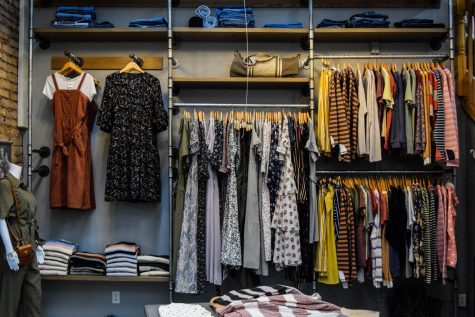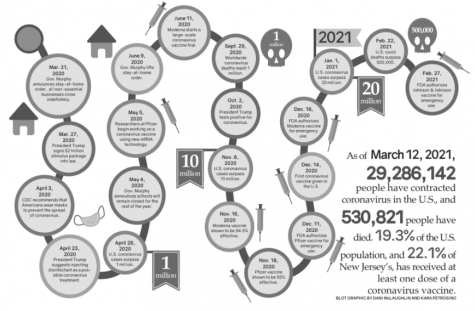Listen up, feds: Amnesty saves
November 13, 2016
It takes 4,300 American teens’ lives annually. It’s illegal, yet the majority of high schoolers, including CHS students, have taken part.
Underage drinking happens across the country. In a survey of 256 CHS students on Oct. 17, 56 percent reported having consumed alcohol in any sense, with 14 percent saying they drink without their parents’ permission. It’s clear no law can truly eradicate illegal underage drinking, but there is a law on the state books that has actually saved lives – the Medical Amnesty Law.
The Medical Amnesty Law applies to one to three individuals who consume alcohol illegally and call 911 for medical assistance for someone under the influence.
New Jersey is one of 35 states that has this life-saving law. But the majority of CHS students will be attending college within the next four years, and not necessarily in New Jersey. This means that depending on where students attend, they may no longer be covered by the Medical Amnesty Law.
Florida is one of the 15 states without this law. According to the University of Florida’s website, “Medical Amnesty Policy only applies to the UF Student Code of Conduct, Housing & Residence Education Community Standards, and Greek Life policies. It does not prevent or preclude police or other legal actions.”
To an outsider, calling the police when someone is in danger is the obvious choice – and it should be. But considering the punishment for underage drinking, it is apparent that fear of the law is prohibiting students from making the right decision.
An underage student at a party in Florida could be subject to a second-degree misdemeanor charge. According to Criminal Defense Lawyer, a reference website for attorneys, a first offense of underage drinking in Florida could result in a fine of $500 and 60 days in jail.
Without the Medical Amnesty Law, students in Florida and 14 other states will be punished for making the courageous decision to save a life. After the fines and jail time, would students would make the same brave decision again?
The Medical Amnesty Law’s track record has already proven its worth. In one year following the implementation of one Medical Amnesty policy, there was a 700 percent increase in the number of alcohol-related EMS calls. This is in sharp contrast to the results of the Cornell University survey report, which reported that 19 percent of college students said they probably should have called 911 for a highly intoxicated individual they were with, but 4 percent actually made the call.
But there is still room for improvement. Without all 50 states supporting this law, true success cannot be achieved. The safety of America’s youth should be at the heart of legislation regarding underage drinking, and the Medical Amnesty Law is a perfect opportunity to demonstrate this.
Enacting the Medical Amnesty Law on the federal level will be a monumental step in prioritizing the safety of America’s youth. As they’re the future of the country, this would be a positive investment in the future of America as a safe and prosperous place.
So to the new Commander-in-Chief, listen up; we need you and Congress to hit the ground running. It’s time to fight for 15 states’ teens and 50 states’ futures.








